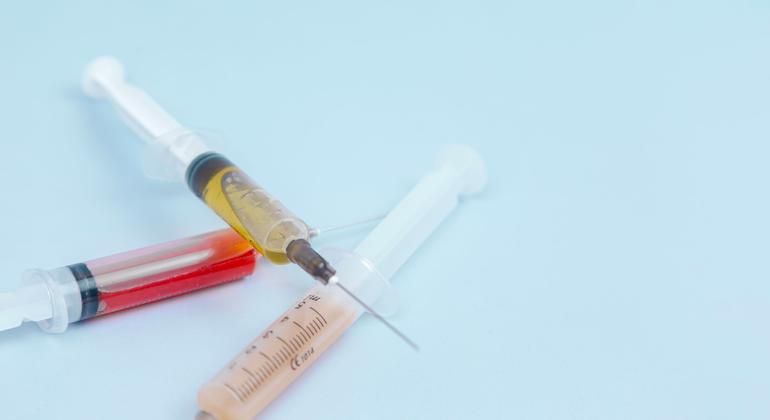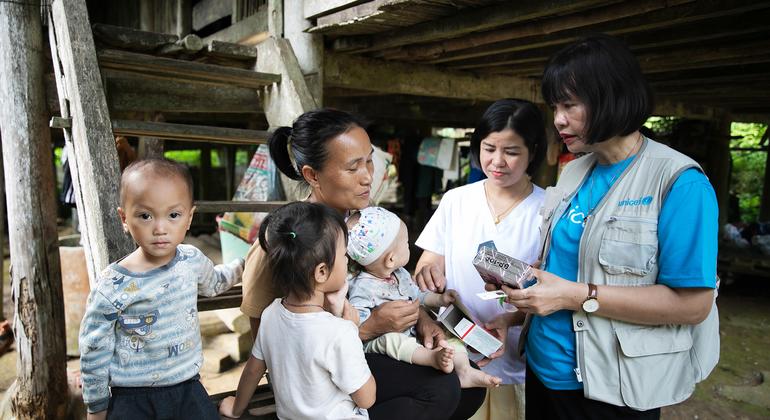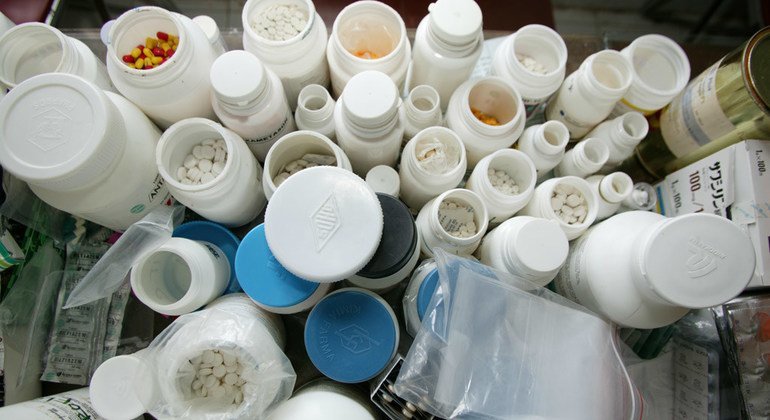The OraQuick HCV self-diagnostic test “can provide a Fundamental support to expand access to testing and diagnosis,” WHO said in a press release.
The kit is manufactured by OraSure Technologies and is an extension of the OraQuick® HCV Rapid Antibody Test, which was initially prequalified by WHO in 2017 for professional use.
Prequalification by the UN health agency helps ensure that medicines supplied by international procurement agencies meet acceptable standards of quality, safety and efficacy.
“The addition of this product to the WHO prequalification list provides a safe and effective way to scale up HCV testing and treatment services, ensuring that more people receive the diagnoses and treatment they need and ultimately contribute to the global goal of HCV elimination“said Dr Meg Doherty, Director of Global Programmes on HIV, Hepatitis and STIs.
Blood-borne virus
Hepatitis C attacks the liver and can cause both acute and chronic illnesses that can be life-threatening.
It is transmitted through contact with infected blood, including sharing needles or syringes, untested blood transfusions, and sexual practices that lead to exposure to blood.
About 50 million people suffer from chronic hepatitis C virus infectionwith around one million new infections each year, according to the WHO.
The UN agency estimated that approximately 242,000 people died from hepatitis C in 2022, mainly from cirrhosis and hepatocellular carcinoma, or primary liver cancer.
In 2021, WHO recommended self-testing to complement existing testing services, based on evidence showing that it increases both access to and uptake of services, particularly among people who would otherwise be unable to get tested for the virus.
Expanding testing and treatment
Dr Doherty said 3,500 people die every day from viral hepatitis.
Furthermore, “of the 50 million people living with hepatitis C, only 36 percent had been diagnosed and 20 percent had received curative treatment by the end of 2022.”
Dr Rogério Gaspar, Director of WHO’s Regulatory and Prequalification Department, added that “the availability of a WHO-prequalified HCV self-test enables low- and middle-income countries to have access to safe and affordable self-testing options, which is essential to achieving the goal of 90 per cent of all people with HCV being diagnosed.”
WHO said it will continue to evaluate additional HCV self-testing tests, among other measures, including working with communities to expand the available options to all countries.












